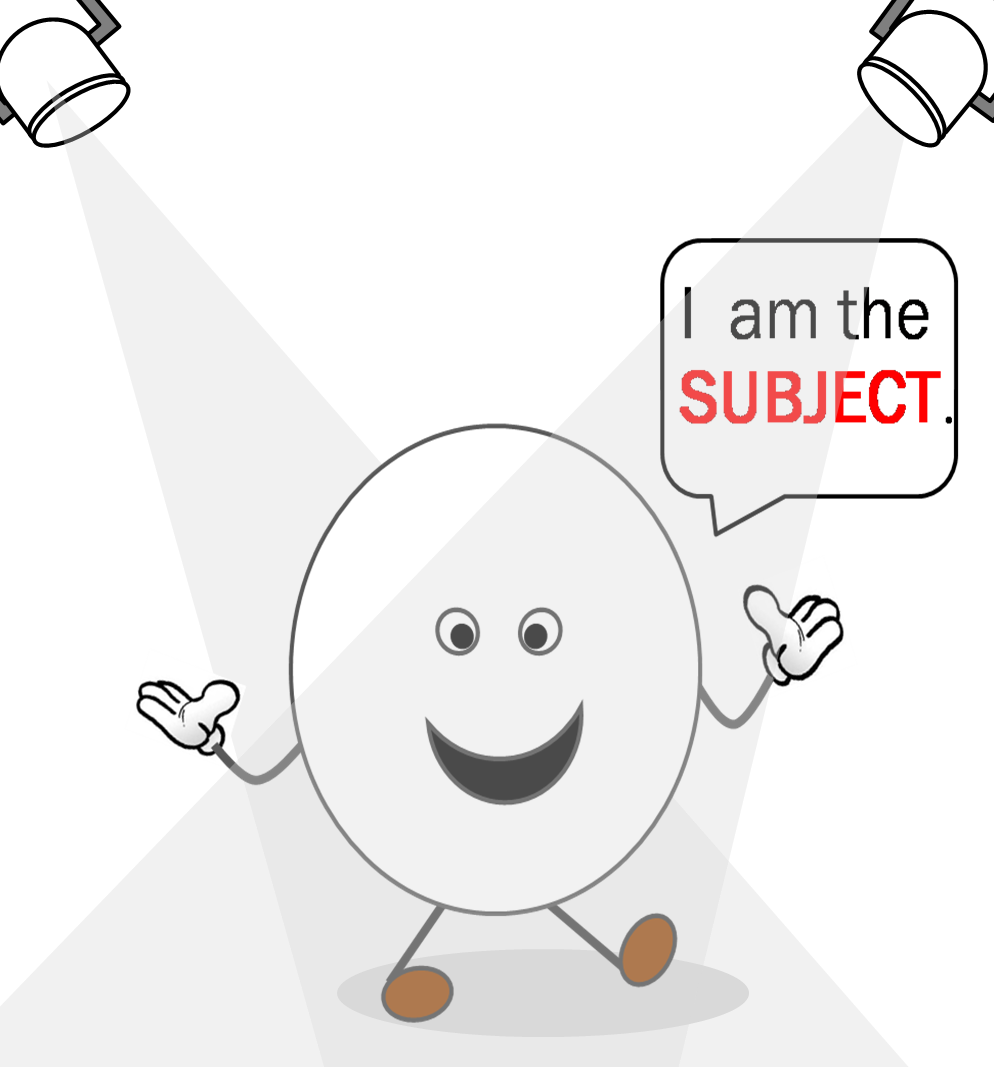What is the Subject in a Sentence?
A
subject is one of the components that every complete sentence needs to
have. Usually a subject is a noun, like car or country; a pronoun, like
he, she, or they; or a noun phrase, like the winning team, or my fourth
grade teacher.
Usually the subject is the one who does the action
in a sentence. For example: the dog chased the ball. In that example,
chasing is the action, and do is the subject - the one who does the
action.
That action can also be more abstract, such as in the
example: The wedding was beautiful. In that example, the action is being
beautiful, and the wedding is the subject that does it.
Subject in a Passive Sentence
Both
of those examples are in the active voice. In the passive voice, the
object - which is the thing that had the action done to it - becomes the
subject. It's acted upon, rather than doing the action itself. So for
example, you could put the active sentence "The dog chased the ball"
into the passive voice by saying, "The ball was chased by the dog."
Do
be careful not to use the passive voice too much, because it's less
dynamic than the active voice and it can make your writing wordy.
Subject in Interrogative and Imperative Sentences
All
of the examples I've used so far, both active and passive, have been
declarative sentences. In a declarative sentence, the subject usually
comes before the verb. In interrogative sentences - also known as
questions - the subject usually comes after the first part of the verb,
or the helping verb. For example: Did the dog chase the ball? is a
question. Did is a helping verb.
One other type of sentence is the
imperative. It's a direct address to the audience, usually instructing
them to do something. So for example: "Shut the door" is an imperative
sentence. In imperative sentences, the subject - you - is typically
implied rather than specifically put into the sentence.
To learn more, visit About.com. and listen to the video


Nenhum comentário:
Postar um comentário